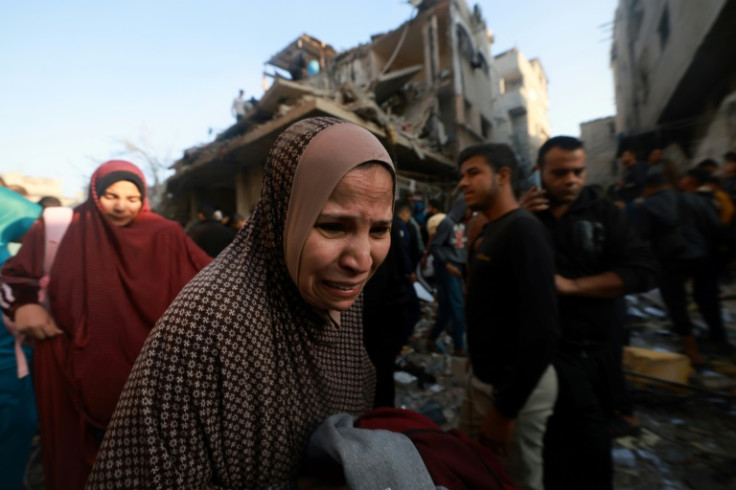Truce Breakdown Brings 'Nightmare' Back To Gaza: ICRC Head

Renewed fighting in Gaza after a week-long truce has brought back a "nightmarish situation" for the Palestinian territory, the head of the Red Cross told AFP on Friday.
Speaking on the sidelines of the UN's COP28 climate talks in Dubai, Robert Mardini said "people are at a breaking point, hospitals are at a breaking point, the whole Gaza Strip is in a very precarious state".
Resumption of fighting brings the people of Gaza "back to the nightmarish situation they were in before the truce took place", said Mardini, director-general of the International Committee of the Red Cross.
He noted their "suffering, destruction, fear, anxiety and precarious living conditions".
Israel's military said fighter jets were striking Hamas targets in Gaza on Friday, as AFP journalists reported air attacks in the north and south of the territory.
Combat resumed shortly after Israel's army said it had intercepted a rocket fired from Gaza, the first from the territory since a missile launched minutes into the start of the truce on November 24.
"There is nowhere safe to go for civilians," Mardini said, stressing the challenges hospitals and humanitarian organisations are facing.
"We have seen in the hospitals where our teams have been working, that over the past days, hundreds of severely injured people have arrived," he said.
"The influx of severely wounded outpaced the real capacity of hospitals to absorb and treat the wounded, so there is a massive challenge."
During the seven-day truce, 80 Israeli hostages and 240 Palestinian prisoners were released after negotiations mediated by Qatar with support from Egypt and the United States.
ICRC vehicles brought out both hostages and prisoners.
"We have seen so far that releases only happened when there was a truce because you need certain conditions to be met to do this," Mardini said.
"We stand ready as the ICRC to facilitate those releases."
Renewed fighting also threatens the entry of aid to Gaza where about 80 percent of the population is displaced and grappling with shortages of food, water and other essentials.
"With the resumption of hostilities, the likelihood will be that less aid will get in," Mardini said.
"More importantly, humanitarian organisations, like the Palestinian Red Crescent society, and others such as the ICRC and UN agencies, will have reduced capacities to deliver aid to the people," he added.
"Even people will have reduced capacities to get to places where they could receive aid."
The truce had paused fighting that began on October 7 when Hamas militants broke through Gaza's militarised border into Israel.
The unprecedented attack killed about 1,200 people, mostly civilians, and militants kidnapped about 240, according to Israeli authorities.
Israel vowed to eliminate Hamas in response and unleashed an air and ground military campaign in Gaza that the Hamas government says killed around 15,000 people, also mostly civilians.
© Copyright AFP {{Year}}. All rights reserved.





















